Last updated: January 24, 2024
Article
The Kennedy Family Maids of 83 Beals Street, Brookline, Massachusetts
"We had started out with a maid of all work who cooked, served, cleaned, laundered...When the babies began coming we added another helper; a hospital-trained nursemaid." -Rose Fitzgerald Kennedy, Times to Remember
Who were they?
Joseph and Rose Kennedy employed two live-in maids when they resided at 83 Beals Street, Brookline, Massachusetts, from 1914-1920. Mrs. Kennedy wrote about the help, but never mentioned them by name. Who were these women? Historical records helped us identify them. First we consulted the 1920 national census, shown below, which lists Mary O'Donahue and Alice Michelin as the two servants living with the family. The census also includes valuable information such as age and birthplace. Unfortunately, we have no record of how long their service lasted or whether they were the first maids who found employment at 83 Beals Street. Further research yielded both more information and dead ends.

United States Census Bureau
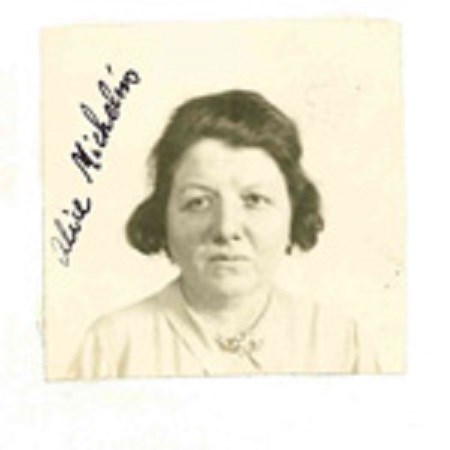
National Archives of Boston
Alice Michelin, (1892-1945), Nursemaid
In 1911, 18-year old Alice Michelin traveled to the French coast to catch a steamship bound for New York. After passing through Ellis Island, she traveled to Boston to join her brother who was already living there. Her training was as a nursemaid or governess, which is how we identified her role with the Kennedys. However, in 1920 she left their service and returned to France to visit family for a year. Alice went on to serve as a nursemaid for other families in Boston. One of her later charges remembered her as a "dear, bright, pleasant person."
Mary O'Donahue, (1887-?), Maid of All Work
Mary was one of many young Irish immigrants who worked as domestic servants. Around 1908 she journeyed to the United States and soon found employment as a maid for a family in Quincy, Massachusetts. Mrs. Kennedy wrote that when she moved to Beals Street "one of my friends sent me her maid--a gay neat Irish girl who cooked & served & made the beds...& made us quite happy." Could this have been Mary, or was it a predecessor? We don't know how long Mary worked for the Kennedy family nor do we have any photographs of her. By the time of the next census in 1930, we couldn't locate her in any records. What could have happened to Mary? Marriage or return to Ireland are among the possibilities.
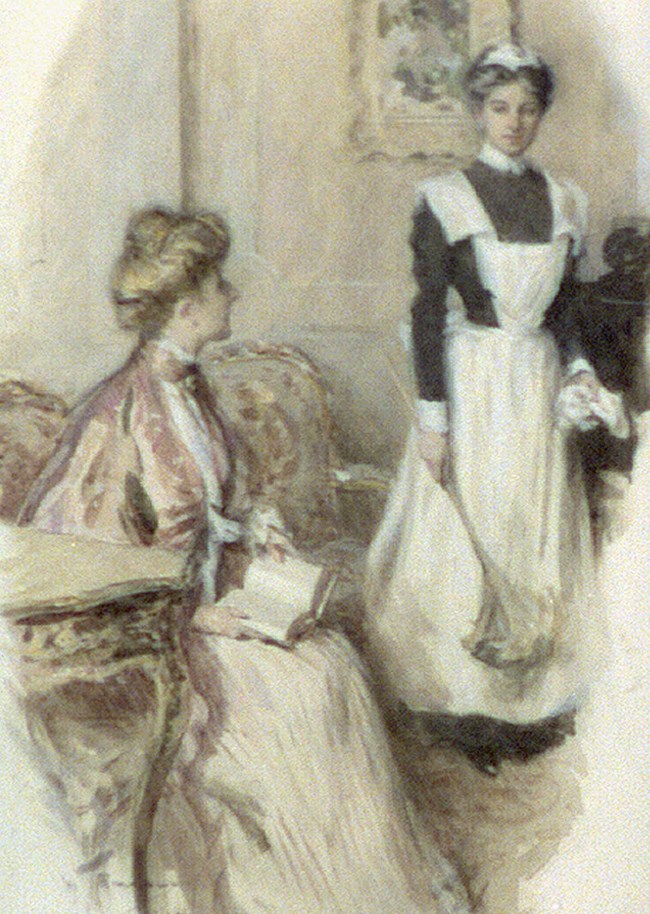
Library of Congress, Prints and Photographs Division.
Domestic Servants
During their employment at 83 Beals Street, Alice and Mary lived with the Kennedy family. Each of the women had their own bedroom in the attic. The rooms were fairly spacious with closets and windows, but became unbearably hot in the summer. However, like most domestic servants, they did not spend much time in their rooms. Instead, they were busy at work in other areas of the house.
It was common for middle-class families to have domestic servants in the late nineteenth and early twentieth centuries. Yet times were changing. The percentage of households on Beals Street with live-in servants dropped from 70% in 1910 to 20% in 1920, reflecting national trends. Smaller homes, more prepared foods, and changing lifestyles meant that fewer people wanted household help. However, as the Kennedy family grew in wealth and number, they increased their domestic staff to include more maids, a governess, and a chauffeur.
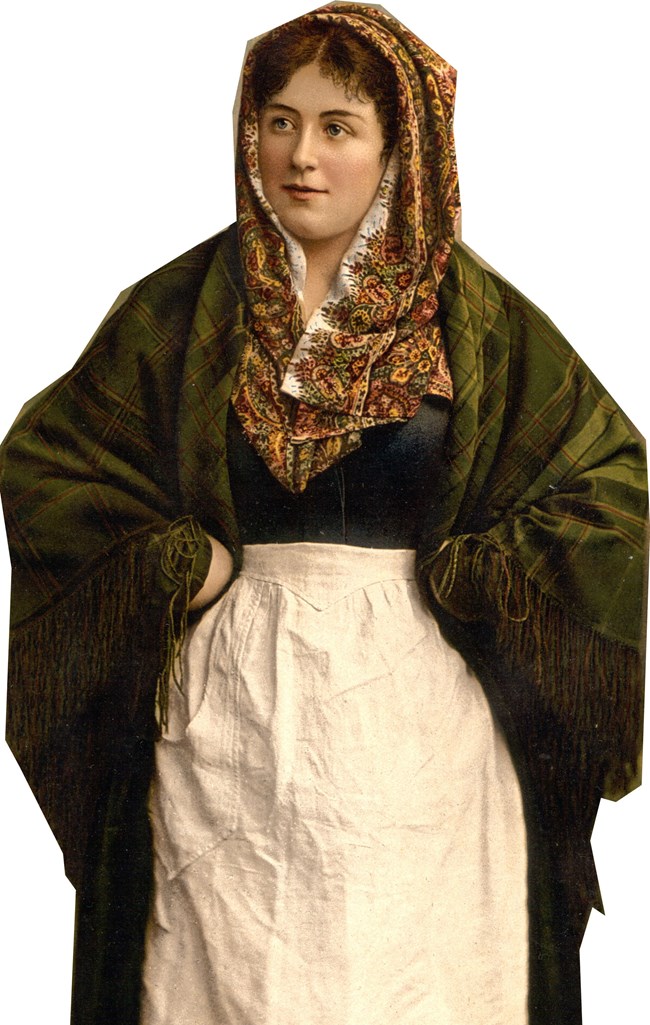
Library of Congress, Prints and Photographs Division, Photocrom Collection, LC-DIG-ppmsc-09945.
Entering Domestic Service
Finding a job was a pressing need for new immigrants to the United States. Young, single women often chose to go into domestic service. There was high demand for servants, as many native-born Americans considered it to be a low-status job and looked for employment elsewhere.
For new maids it could be challenging to adjust to life in a foreign home. Domestic service was lonely, demanding work with long hours and little freedom. Yet the pay was decent, and they gained a roof over their heads. During their employment these women gained new skills and were able to save wages for whatever the future brought.
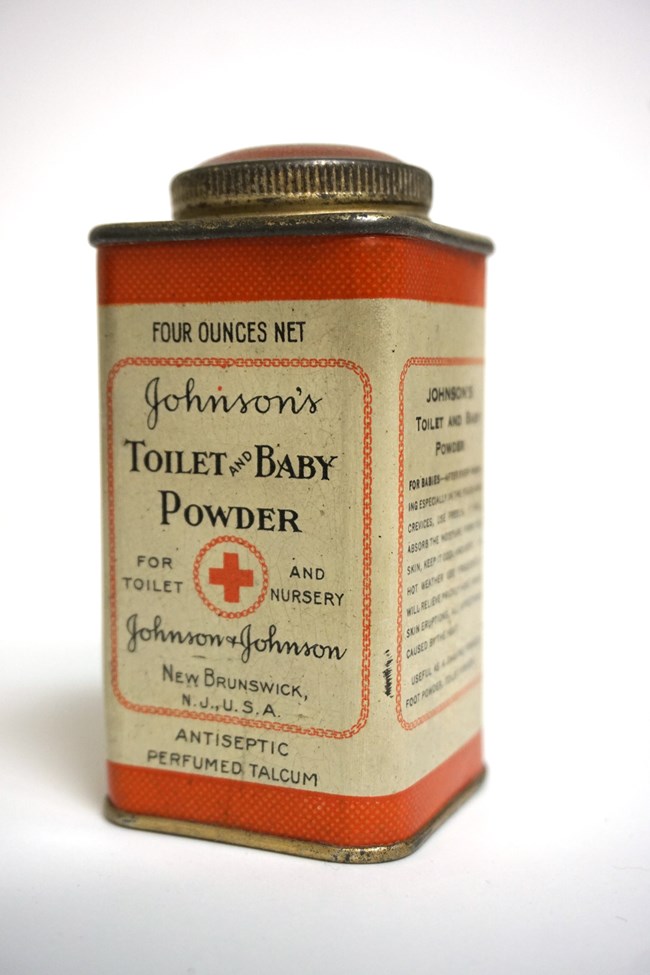
NPS
"One of my continuing memories is two decades of rows of diapers hanging up to dry on the backyard clotheslines. In the winter they often froze stiff and then had to be thawed and further dried before being put away...I remember all those radiators, sizzling away, draped in white." -Rose Kennedy, Times to Remember
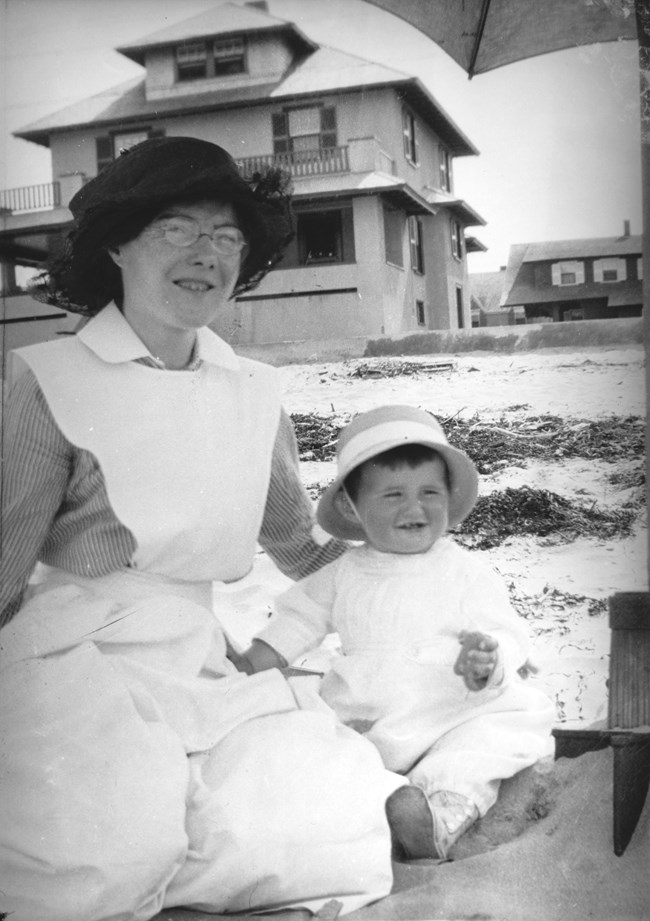
Kennedy Family Photograph Collection. Courtesy of the John F. Kennedy Library Foundation.
The Nursemaid
Nursemaids were in high demand in the early twentieth century. They provided extra support for mothers in a time before disposable diapers and pre-made formula. Many nursemaids went through training programs offered by hospitals. Over a course of several months, students learned how to care for babies, administer basic first aid, prepare food, and do simple housekeeping for the nursery.
Many nursemaids found employment with families where a typical salary was around $6 a week. Mrs. Kennedy also gave Alice every other Sunday off, which was standard for her position.
Alice worked non-stop. She changed and washed diapers, sewed on loose buttons, prepared baby food, took the children on walks, bathed them, and helped put them to bed.
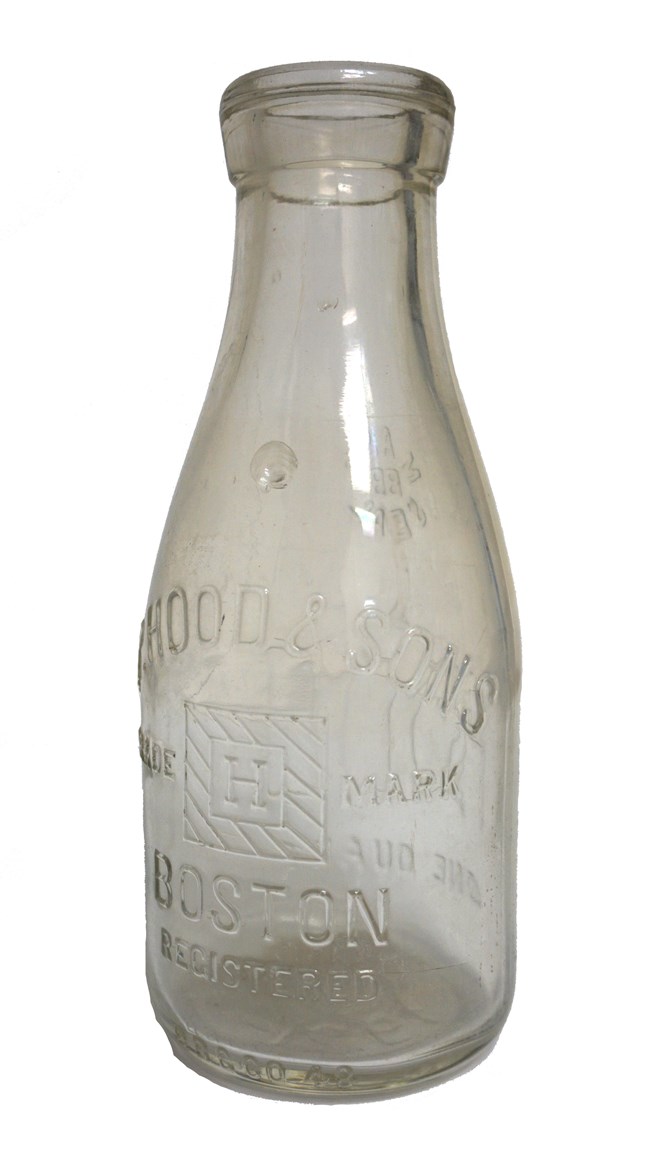
NPS
Mrs. Kennedy learned how to manage a household from domestic science classes she took in school. She had grown up with servants and expected to mainly play a supervisory role in her home. She planned schedules and mediated any disputes between staff. Mrs. Kennedy tried to be home in the evenings to read to the children while Alice ate dinner. She wrote: "There were also the daily supply of bottles and nipples to be cleaned and sterilized. I didn't do much of it myself, but I had to be sure it was done properly, and on a schedule that wouldn't interfere with another vital schedule. If nursemaids were in the kitchen boiling bottles and nipples and preparing "formulas" and pureeing vegetables (there were no canned baby foods then) when the cook needed the stove and some of the same utensils to prepare supper, there could be a kitchen crisis." It took many people to keep the Kennedy household running.
"[The maid] had been getting 6.00 working for a friend of mine and then she wanted a raise so my friend recommended her and she came to me quite happily and she did the work here. Put on her black uniform and white apron served the dinner at night."
-Interview with Rose Kennedy, 1967
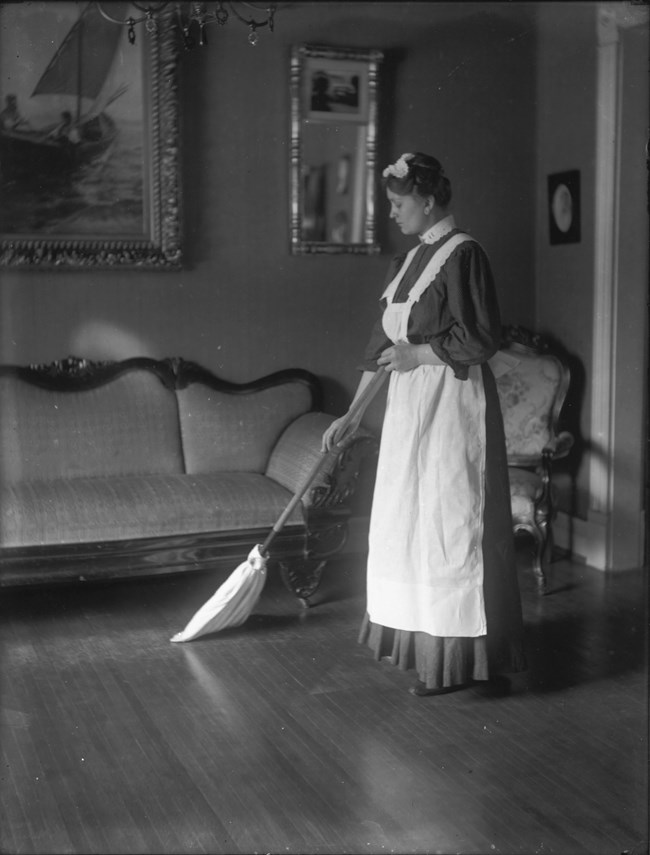
Photo taken by Mary Lyon Taylor, Indiana Historical Society, P0178, cropped and lightened.
The Maid of All Work
In smaller households, it was common to employ a maid of all work. Mrs. Kennedy wrote that she paid Mary O'Donahue $7.00 a week. This rate was slightly higher than the average at the time.
Mary spent much time in the kitchen baking bread, mixing cakes by hand, cutting vegetables for soups, and washing dishes. Yet there was also cleaning and ironing to do and silver to polish. It was a long day of work from dawn to dusk. Luckily for Mary, she didn't have to do much laundry for the family. Laundry was a hot, intensive process taken care of by a laundress who came in twice a week. The laundress would have needed the physical strength to lift and move heavy tubs of water. She would also bring her own recipes for stain removal, bleaching, starching and detergents.
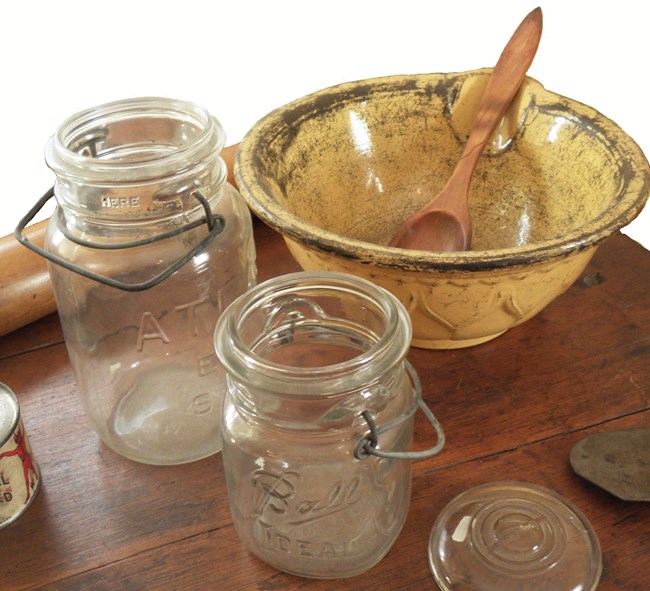
NPS Photo
Mary’s work would have changed as the Kennedys bought new commercial technologies for the kitchen. These modern appliances included an electric toaster and a combination range of gas and coal. New innovations allowed for quicker and easier food preparation, cooking, and clean-up.
Mary must have looked forward to her time off: an afternoon a week and every other Sunday. During her free time, she may have visited with other Irish domestic servants, gone to dances, and strolled through local parks. Mary was probably Catholic, and by working in a devoutly Catholic household, she was likely allowed time to go to mass.
The rise of the Kennedy family to prominence is demonstrative of the American Dream realized on grand scale. Within several generations, the Kennedy family, through hard work, determination, and fortunate circumstance, become fabulously successful and their story is one that captivates and inspires many people today. Undoubtedly, Alice and Mary's service eased the burdens of housework and childcare so that the Kennedys could pursue other interests on their path to success. It's also likely that the Kennedy children developed close bonds with their caretakers. Thus, the maids' story is important as it adds to the layered history of 83 Beals Street and John Fitzgerald Kennedy National Historic Site.
